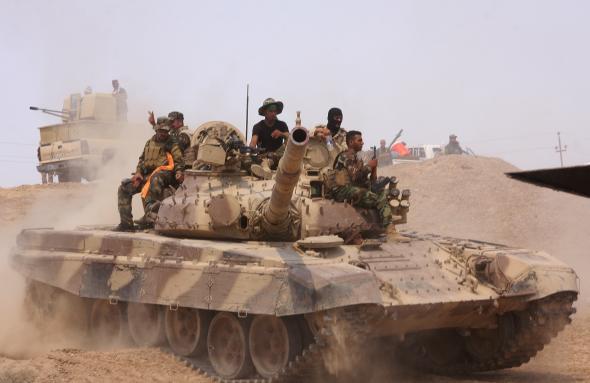The Obama administration is readying itself to announce a change of course in Iraq and the battle against ISIS there. Following months of behind-the-scenes discussion on what to do to combat resurgent ISIS militants, and criticism following Obama’s Monday remarks that there was not yet “a complete strategy” to improve the effort in Iraq, the administration let slip on Tuesday that it’s planning to send hundreds more military personnel to help retake Ramadi and set up a new military base in Anbar Province in Western Iraq.
The estimated 500 military trainers would boost the American presence in Iraq; there are currently 3,080 U.S. military personnel in the country, according to the Wall Street Journal. The New York Times calls the potential move “a major shift of strategy,” whereas the Wall Street Journal takes a more measured view, calling it a “marked if modest expansion of the U.S. military role in Iraq.” The new strategy, the Journal notes, “would expose American forces to greater risk of being drawn into direct combat with Islamic State forces that already control territory around likely sites for a planned U.S. training base.”
The strategic rethink also tracks new developments on the ground in Iraq. Recapturing Mosul from ISIS control was seen as the priority for American-backed Iraqi forces until Ramadi, the capital of Anbar Province, was overrun by ISIS forces last month. “American officials said Anbar is now expected to become the focus of a long campaign that will seek to regain Mosul at a later stage, probably not until 2016,” the New York Times reports.
“The viability of the U.S. strategy is hotly debated in Washington, with some calling for U.S. ground combat troops or at least the embedding of U.S. air controllers with Iraqi ground forces to improve the accuracy and effectiveness of U.S. and coalition airstrikes,” the Associated Press reports. “The changes are aimed at bolstering the participation of Sunni tribes in the fight, but the plan is not likely to include the deployment of U.S. forces closer to the front lines to either call in airstrikes or advise smaller Iraqi units in battle, officials said.”
